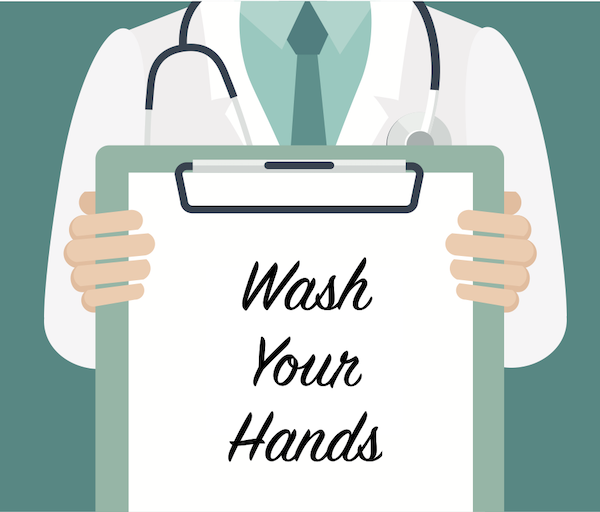As New Jersey’s only National Cancer Institute-designated Comprehensive Cancer Center, Rutgers Cancer Institute of New Jersey together with RWJBarnabas Health is the state’s leading authority on cancer. As such, we want to help our patients navigate and better understand how the coronavirus may impact them.
Frequently Asked Questions:
What do cancer patients need to know about the coronavirus?
Doctors and health officials agree the best way to prevent the coronavirus is to avoid exposure. This is especially important for cancer patients because they are at higher risk for serious illness if infected, particularly bone marrow transplant patients and patients who are in active chemotherapy. That’s because their immune systems are suppressed or eliminated by the treatment. Call your doctor if you have symptoms of COVID-19, which include: fever, cough, or shortness of breath.
About the COVID-19 Vaccine
Read more about the COVID-19 vaccine in RWJBarnabas Health's FAQ.
Guidelines for fully vaccinated individuals
Guía para personas completamente vacunadas
Understanding COVID-19 Vaccines Infographic
Rutgers COVID-19 Vaccine Scheduling Assistance Program
Are cancer patients at a higher risk of developing the coronavirus?
Patients who are in active cancer treatment may be at higher risk of contracting the coronavirus because their immune systems are often weakened by cancer and its treatments. Those who have underlying chronic medical conditions like heart or lung disease or diabetes seem to be at higher risk for developing more serious complications from COVID-19 illness. Cancer patients who finished treatment a few years ago or longer have immune systems that have most likely recovered, but each person is different. The majority of individuals who do get the coronavirus will have a mild case.
If I have cancer, should I receive the COVID-19 vaccination?
In addition to receiving initial COVID-19 vaccination/s (two doses of Pfizer or Moderna; or one dose of Johnson & Johnson), the independent Advisory Committee on Immunization Practices (ACIP) of the Centers for Disease Control and Prevention recommended on August 13, 2021, that people with moderately to severely compromised immune systems receive an additional dose of mRNA COVID-19 vaccine following their initial two-dose vaccination series (those who received the Pfizer or Moderna series). This includes those who have been receiving active cancer treatment for tumors or cancers of the blood.
Where am I able to receive a COVID-19 vaccination?
COVID-19 vaccinations are available at numerous locations throughout the state. For the most up-to-date information please visit: covid19.nj.gov/vaccine
What can I do to reduce my risk of developing the coronavirus?

You should be following guidelines from the Centers for Disease Control and Prevention and World Health Organization to reduce your risk. These include:
- Washing your hands often with soap and water for at least 20 seconds especially after you have been in a public place, or after blowing your nose, coughing, or sneezing.
- If soap and water are not readily available, use a hand sanitizer that contains at least 60 percent alcohol. Cover all surfaces of your hands and rub them together until they feel dry.
- Avoid touching your eyes, nose, and mouth with unwashed hands.
- Practice social distancing – staying six feet away from others and avoiding close contact with people who are sick.
- Stay home if you are sick, except to get medical care.
- Cover your mouth and nose with a tissue when you cough or sneeze or use the inside of your elbow.
- Clean and disinfect frequently touched surfaces daily. This includes tables, doorknobs, light switches, countertops, handles, desks, phones, keyboards, toilets, faucets, and sinks.
What is Rutgers Cancer Institute of New Jersey doing to protect its patients?
At Rutgers Cancer Institute, we are taking extra precautions to provide the safest environment possible for our patients, visitors and staff. We have instituted temporary changes to our visitor guidelines which should be reviewed prior to coming for an appointment. View the guidelines here. All visitors 18 years of age and under will not be permitted. We continue to screen all patients for coronavirus.

How do I deal with the stress I’m feeling from this situation?
We know these are stressful times and we want to help you cope with the stress related to COVID-19 concerns. Below are a few tips:
- Take breaks from watching, reading, or listening to news/social media
- Take deep breaths, stretch, meditate
- Eat healthy, well-balanced meals, exercise regularly
- Get plenty of sleep
- Do things you enjoy like baking or walking the dog
- Talk with people you trust about how you are coping
Where can I find more information on the coronavirus?
- The New Jersey Department of Health: website or hotline 1-800-222-1222
- The Centers for Disease Control and Prevention
- American Cancer Society
- RWJBarnabas Health Resource Page
- Rutgers University Resource Page
- NCI - Coronavirus: What People with Cancer Should Know
- NCI - COVID-19 and Cancer

